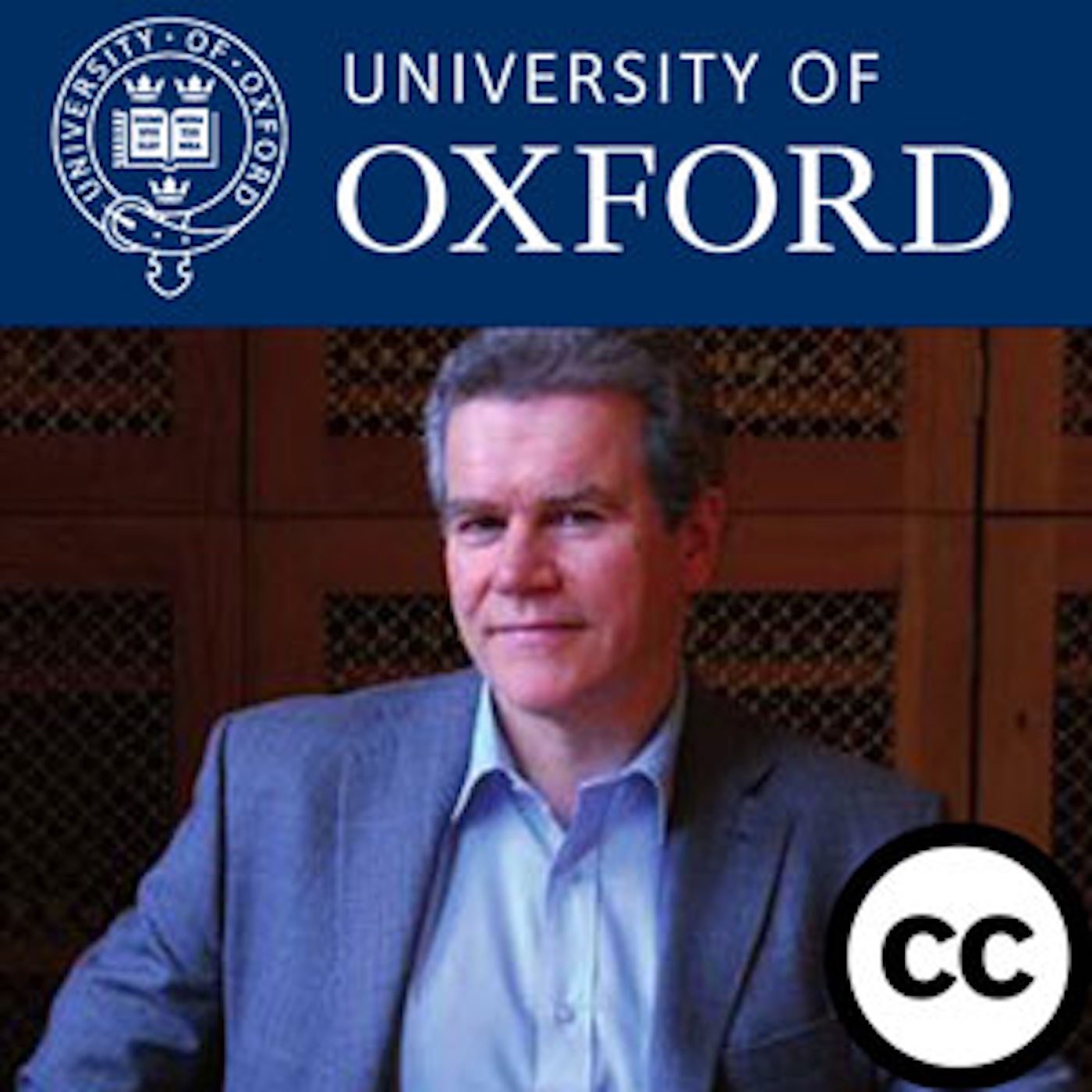Episodes
PDF slides from Peter Millican's General Philosophy lecture 3. Creative Commons Attribution-Non-Commercial-Share Alike 2.0 UK: England & Wales; http://creativecommons.org/licenses/by-nc-sa/2.0/uk/
Published 04/08/10
Part 3.2. Responses to and justifications of Hume's argument concerning the problem of induction. Creative Commons Attribution-Non-Commercial-Share Alike 2.0 UK: England & Wales; http://creativecommons.org/licenses/by-nc-sa/2.0/uk/
Published 04/08/10
Part 3.1. Briefly introduces the problem of induction: that is, the problem that it is difficult to justify claims to knowledge of the world through pure reason, i.e. without experience. Creative Commons Attribution-Non-Commercial-Share Alike 2.0 UK: England & Wales; http://creativecommons.org/licenses/by-nc-sa/2.0/uk/
Published 04/08/10
Part 2.7. Concludes a historical survey of philosophy with Immanuel Kant, who thought Hume was wrong in his idea of human nature and how we gain knowledge of the world. Creative Commons Attribution-Non-Commercial-Share Alike 2.0 UK: England & Wales; http://creativecommons.org/licenses/by-nc-sa/2.0/uk/
Published 04/08/10
PDF slides from Peter Millican's General Philosophy lecture 2. Creative Commons Attribution-Non-Commercial-Share Alike 2.0 UK: England & Wales; http://creativecommons.org/licenses/by-nc-sa/2.0/uk/
Published 04/08/10
Part 2.6. Introduces 18th Century Scottish philosopher David Hume, 'The Great Infidel', including his life, works and a brief look at his philosophical thoughts. Creative Commons Attribution-Non-Commercial-Share Alike 2.0 UK: England & Wales; http://creativecommons.org/licenses/by-nc-sa/2.0/uk/
Published 03/16/10
Part 2.5. Focuses on Malebranche, a lesser-known French Philosopher, and his ideas on idealism and the influence they had on English philosopher George Berkeley. Creative Commons Attribution-Non-Commercial-Share Alike 2.0 UK: England & Wales; http://creativecommons.org/licenses/by-nc-sa/2.0/uk/
Published 03/16/10
Part 2.4. Introduction to the philosophy of John Locke, 'England's first Empiricist', he also gives a very simplistic definition of Empiricism; we obtain knowledge through experience of the world, through sensory data (what we see, hear, etc). Creative Commons Attribution-Non-Commercial-Share Alike 2.0 UK: England & Wales; http://creativecommons.org/licenses/by-nc-sa/2.0/uk/
Published 03/16/10
Part 2.3. An introduction to Robert Boyle's theory of corpuscularianism and Isaac Newton's ideas on mathematics and the universe. Creative Commons Attribution-Non-Commercial-Share Alike 2.0 UK: England & Wales; http://creativecommons.org/licenses/by-nc-sa/2.0/uk/
Published 03/16/10
Part 2.2. A brief introduction to Thomas Hobbes, 'The Monster of Malmsbury', his views on a mechanistic universe, his strong ideas on determinism and his pessimistic view of human nature: 'The life of man is solitary, poor, nasty, brutish and short'. Creative Commons Attribution-Non-Commercial-Share Alike 2.0 UK: England & Wales; http://creativecommons.org/licenses/by-nc-sa/2.0/uk/
Published 03/16/10
Part 2.1. A brief recap on the first lecture describing how Aristotle's view of the universe, dominant throughout the middle ages in Europe, came to be gradually phased out by a modern, mechanistic view of the universe. Creative Commons Attribution-Non-Commercial-Share Alike 2.0 UK: England & Wales; http://creativecommons.org/licenses/by-nc-sa/2.0/uk/
Published 03/16/10
Part 1.4. Outlines Galileo's revolutionary theories of astronomy and mechanical science and introduces Descartes' (the father of modern philosophy) ideas of philosophical scepticism. Creative Commons Attribution-Non-Commercial-Share Alike 2.0 UK: England & Wales; http://creativecommons.org/licenses/by-nc-sa/2.0/uk/
Published 02/19/10
PDF slides from Peter Millican's General Philosophy lecture 1. Creative Commons Attribution-Non-Commercial-Share Alike 2.0 UK: England & Wales; http://creativecommons.org/licenses/by-nc-sa/2.0/uk/
Published 02/19/10
Part 1.3. Describes briefly the Aristotelian view of the universe; the basis for natural science in Europe until the 15th century and its conflict Galileo's theories. Creative Commons Attribution-Non-Commercial-Share Alike 2.0 UK: England & Wales; http://creativecommons.org/licenses/by-nc-sa/2.0/uk/
Published 02/19/10
Part 1.2. Gives a very brief history of philosophy from the 'birth of philosophy' in Ancient Greece through the rise of Christianity in Europe in the Middle Ages through to the Renaissance, the Reformation and the birth of the Modern Period. Creative Commons Attribution-Non-Commercial-Share Alike 2.0 UK: England & Wales; http://creativecommons.org/licenses/by-nc-sa/2.0/uk/
Published 02/19/10
Part 1.1. Outlines the General Philosophy course, the various topics that will be discussed, and also, more importantly, the philosophical method that this course introduces to students. Creative Commons Attribution-Non-Commercial-Share Alike 2.0 UK: England & Wales; http://creativecommons.org/licenses/by-nc-sa/2.0/uk/
Published 02/19/10


